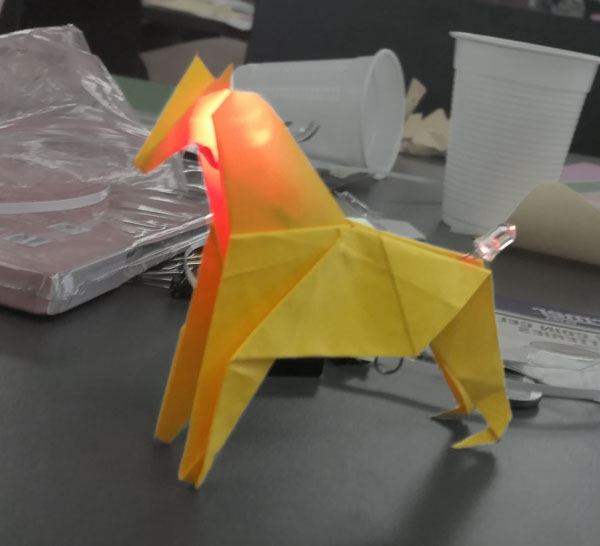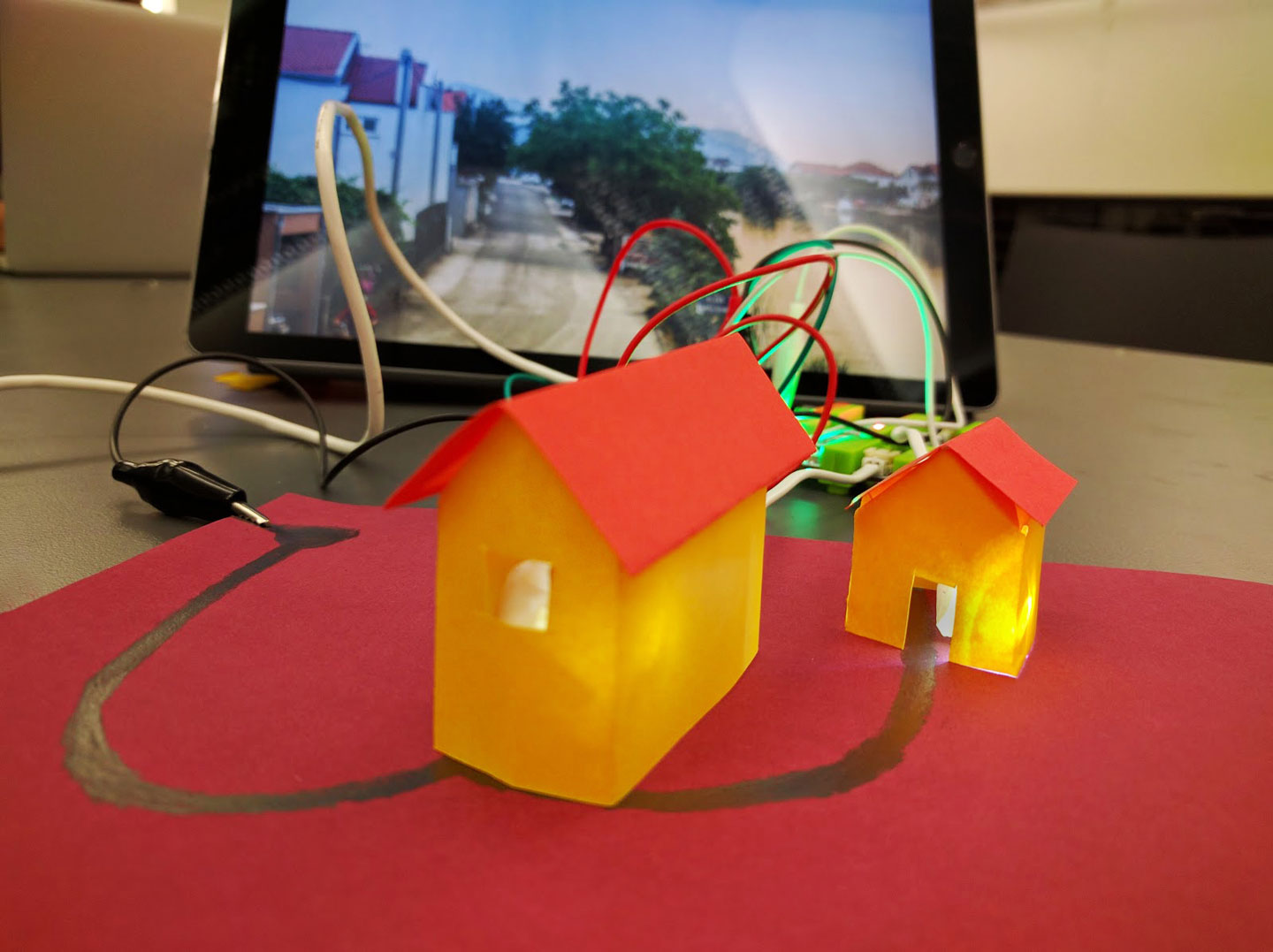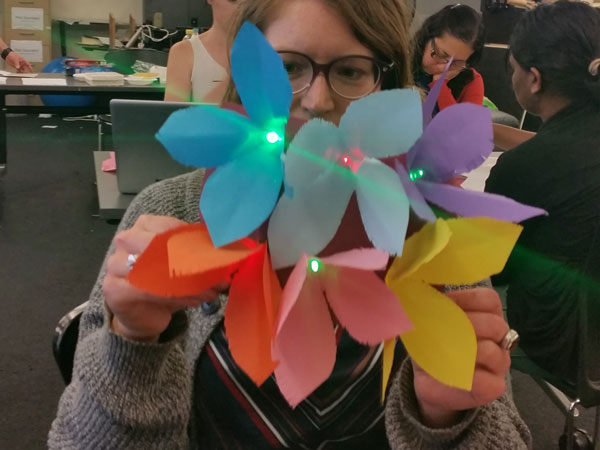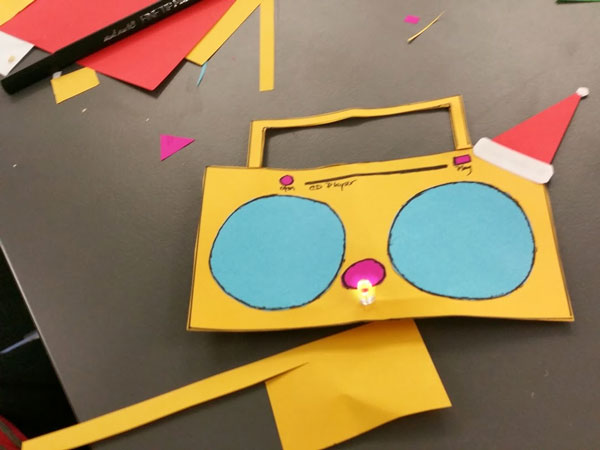Katari is a workshop on Expressive writing + paper electronics that I designed as part of my master dissertation at Usyd.
STEM has a diversity problem.
Technology literacy is increasingly more important in today’s society, but most people assume a passive role as consumers of technology.
This is especially true for women who tend to be underrepresented in STEM fields worldwide.
My research question:
How can storytelling be used to design playful learning experiences to engage students in tangible prototyping with electronics?
Design goal: an emotional experience
Learning is both a rational and an emotional experience. But most of education planning for STEM has been done around the rational disregarding the emotional (Deci & Ryan, 1982)
Why storytelling?
Can be used as a motivation to explore personal interests.
Allows for collaboration and sharing with others.
It has been used successfully to improve engagement of students with coding.
Flexible for different learning styles. (Kelleher et al., 2007 ; Panjwani, 2015)
The final design:
A workshop on
Storytelling
+
paper electronics

How it works
During the workshop students write a short story about something they care about and are then prompted to use it as inspiration for a craft project with paper and simple electronic pieces. Participants learn basic concepts of electronics while working on a personally meaningful project.
Initial results have been encouraging, with women being more likely to incorporate multiple elements of the story in their projects, which could be interpreted as a sign of engagment.
Some projects:
References and further reading:
Deci, E. L., & Ryan, R. M. (1982). Curiosity and Self-Directed Learning: The Role of Motivation in Education. Current Topics in Early Childhood Education, 4, 1–22. Retrieved from http://www.eric.ed.gov/ERICWebPortal/search/detailmini.jsp?_nfpb=true&_&ERICExtSearch_SearchValue_0=ED206377&ERICExtSearch_SearchType_0=no&accno=ED206377
Kelleher, C., Pausch, R., & Kiesler, S. (2007). Storytelling alice motivates middle school girls to learn computer programming. Proceedings of the SIGCHI Conference on Human Factors in Computing Systems – CHI ’07, 1455. http://doi.org/10.1145/1240624.1240844



